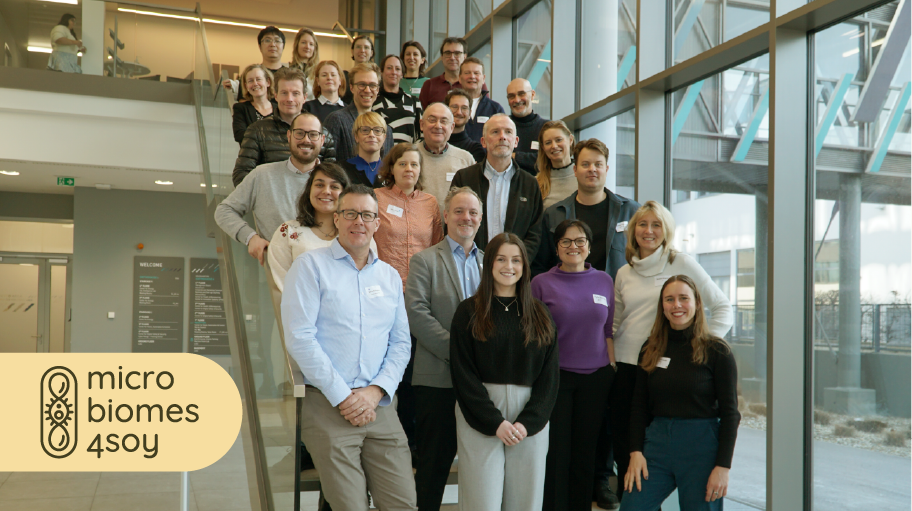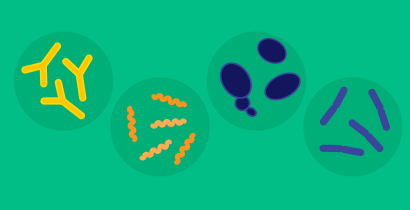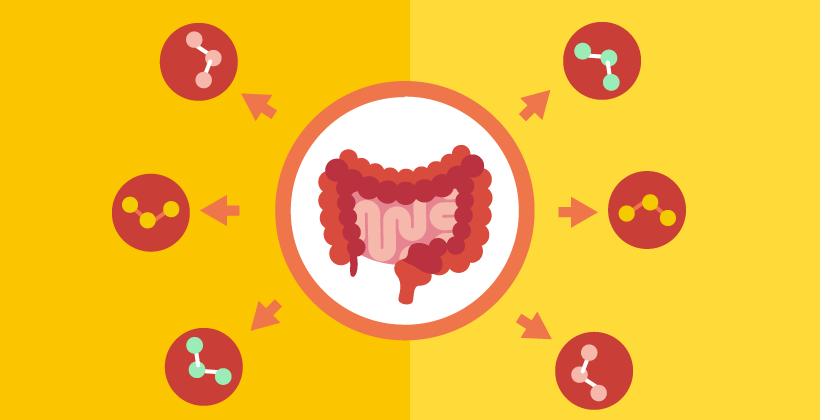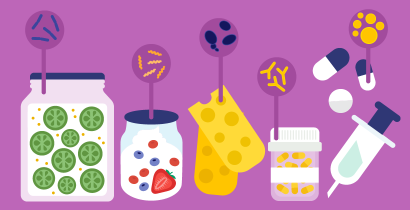Harnessing the power of microbiomes to improve our health: Launch of EU-funded MICROBIOMES4SOY
Last Updated : 27 June 2024MICROBIOMES4SOY responds to the urgent call on World Microbiome Day to transition to healthier, more environmentally friendly, plant-based diets. The EU-funded Horizon project uses the soyabean crop as model system to deepen microbiome understanding and develop ambitious microbiome-based innovations in the food sector.
Why microbiomes?
Microbiomes, the diverse communities of microorganisms found in all parts of the environment and within our human bodies, are the underappreciated and unrealised pioneers of our food systems. Recognising this potential, MICROBIOMES4SOY dives deep into the mysteries of microbiomes, aiming to apply their full capabilities for positive impacts on people and the planet.
What is the scope?
This comprehensive strategy spans from production to consumption, underscoring the interconnectedness of our food ecosystem. Embracing this holistic approach, MICROBIOMES4SOY examines the impact of soya as a climate-positive alternative protein source.
"We will address soya bean as a kind of model crop to better understand the dynamics and functions of soil and plant-associated microbiomes, but we will also develop microbial applications to improve plant stress resilience and to improve the nutritional quality of soya bean." Said Angela Sessitsch, project coordinator at the Austrian Institute of Technology (AIT).
MICROBIOMES4SOY will foster the transition to better planetary health through:
- Developing microbiome-based knowledge and awareness
- Creating microbiome-based solutions through more sustainable food production
- Facilitating healthy soy-enriched diets
Embracing the multi-actor approach
MICROBIOMES4SOY is equipping food system actors, including farmers and industry professionals, with essential knowledge and skills about microbiome-based techniques for enhanced agricultural management and improved aqua feeds. Furthermore, dietary trials will assess the impact of substituting animal protein with soya-based tofu on human health and the gut microbiome. Through advanced scientific techniques such as metagenomic sequencing and metabolome analysis, the project aims to discover how including soy-based proteins in diets could be beneficial for both health and sustainability.
Underlying the soyabean's versatility, Viggó Þór Marteinsson, project partner (MATIS) states, "Microbiome-improved soya can improve the gut microbiome of fish to help develop improved feeds for the aquaculture sector."
Collaborative expertise
The MICROBIOMES4SOY project consortium comprises 17 partners from 10 countries, contributing complementary expertise on soil, plant, human and animal microbiomes, bioinformatics, modelling, crop production, aquaculture, food/feed production, food systems mapping and scientific communication.
"It is essential to take a holistic food system perspective to co-create transition pathways towards sustainable food systems," reminds Beatrix Wepner, project partner (AIT). "Especially when it comes to microbiome as it is ubiquitous (and critical for sustainable food systems), influencing soil fertility, plant, animal and human health!"

Figure 1 Microbiomes4soy project team picture
ENDS
Background:
MICROBIOMES4SOY is funded by the European Commission’s Horizon Europe program. The project aims to address the fragmented understanding of microbiomes within food systems, offering solutions for enhanced sustainability and health.
About:
Learn more about the MICROBIOMES4SOY project and its partners at microbiomes4soy.eu/
Contacts:
For media inquiries and further information, please contact:
• Project communication contact : Darya Silchenko (EUFIC) - darya.silchenko@eufic.org
• Project coordinator: Angela Sessitsch (AIT) - angela.sessitsch@ait.ac.at




